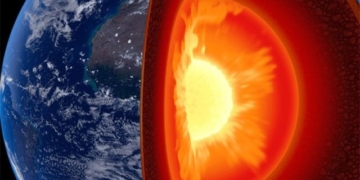For many people, nothing feels more refreshing than a cold glass of water, yet they often overlook the potential drawbacks of this palate-pleasing drink.
According to the U.S. Institute of Nutrition and Dietetics, staying adequately hydrated throughout the day is key to preventing dehydration, which can lead to headaches, dizziness, and digestive issues.
Moreover, the Harvard Health Publishing emphasizes that hydration is crucial for your overall health as it aids in digestion, delivers nutrients and oxygen to your cells, flushes bacteria from your bladder, supports healthy blood pressure, stabilizes your heart rhythm, and protects your organs and tissues…
However, if the water you consume is cold, the health implications can be quite different.
Here are the reasons why experts recommend avoiding cold water.
Cold Water Can Cause Sore Throat

Regularly drinking cold water can damage the respiratory mucous membranes and lead to infections.
When you drink cold water from the refrigerator, it can produce mucus, making you feel short of breath. This can lead to issues such as a sore throat, mucus buildup, colds, and throat swelling.
In cold weather, when temperatures drop, frequently consuming cold beverages can harm the respiratory mucous membranes and lead to infections.
This is why you should avoid cold drinks in winter if you don’t want to face issues like coughing, sore throat, colds, or runny nose…
Experts recommend that using warm or hot beverages during winter will help you better protect your respiratory system and may reduce symptoms of cough, irritation, bad breath, and dry mouth…
Effects on Heart Rate
Drinking cold water can also lower your body’s heart rate. According to one study, the tenth cranial nerve (the vagus nerve) is stimulated when consuming cold water.
This nerve controls the involuntary functions of the body. The effect of cold water directly impacts the vagus nerve, causing a decrease in heart rate.
Can Cause Headaches
Drinking cold or iced water right after being outside is a very dangerous habit. Specifically, consuming cold water can cool many nerves in the spine, affecting the brain and leading to headaches. This condition can even make those with sinus issues feel more uncomfortable.
May Lead to Weight Gain
Experts suggest that those wishing to lose weight should avoid cold water. Cold water makes it difficult to burn body fat. Fat in the body hardens when you drink cold water, completely derailing your fat loss and weight reduction plans.
Causes Indigestion and Digestive Disorders
Drinking cold water immediately after meals constricts blood vessels, making it harder to digest food and keep the body warm.
During meals, if you consume a large amount of fat and then drink cold water, the fat contracts, forcing the stomach to work harder.
Additionally, the stomach typically digests food faster at temperatures closer to body temperature; conversely, extremes in temperature (either too hot or too cold) can disrupt the digestive system due to sudden temperature changes, potentially leading to diarrhea.
Affects the Body’s Immune System
In cold seasons, regularly consuming cold beverages can cause blood vessels to constrict, slowing blood circulation.
In contrast, warm water causes blood vessels to dilate, promoting a more efficient flow of blood to other organs. This enhances your body’s health and strengthens your immune system’s ability to combat pathogens.
Moreover, good blood circulation aids in the effective removal of toxins from the body. As a result, your body’s resistance improves significantly.
Thus, it is entirely understandable why you should avoid cold drinks and instead opt for warm beverages.
While cold ice water may provide a brief feeling of refreshment, it ultimately drains your energy over time. This is because the body has to expend extra energy to warm the cold water, quickly leading to fatigue and lethargy.


















































